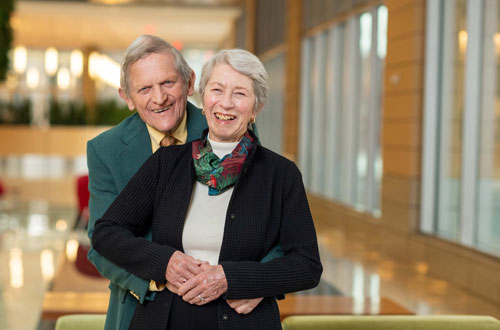2019 AJN Awards
Science Awareness Award
Communicating complex science topics in innovative, engaging ways
Film – The Human Element
JAMES BALOG, PHOTOGRAPHER, AND MATTHEW TESTA, DIRECTOR
Photographer James Balog and director Matthew Testa explore wildfires, hurricanes, sea level rise, a struggling coal mining community, and our changing air supply in The Human Element, a full-length documentary film that highlights Americans who are on the frontlines of climate change.It provides a stunning view into the dynamic between people and nature, revealing that when we change nature, nature changes us. The Human Element debuted in April 2018 at the San Francisco International Film Festival.
James Balog, founder of the Extreme Ice Survey and Earth Vision Institute in Boulder, CO, is author of seven books, including Ice: Portraits of Vanishing Glaciers (2012), Tree: A New Vision of the American Forest (2004), and Survivors: A New Vision of Endangered Wildlife (1990).
Balog’s forty years of environmental photography combines insights from art and science, producing innovative, dynamic and sometimes shocking interpretations of our changing world
Director Matthew Testa has been working in documentary film and television for two decades, often focusing on the environment, social justice issues and the interplay between people and nature. Testa’s previous films and nonfiction series include Murder Mountain (Netflix), Vlogumentry (YouTube Premium), Snake Salvation (National Geographic), Whale Wars (Animal Planet), Storm Chasers (Discovery) and The First 48 (A&E). His first film was the ITVS-funded environmental documentary, The Buffalo War, which aired nationally on PBS, toured festivals and won 9 awards.
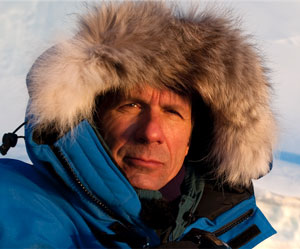
James Balog
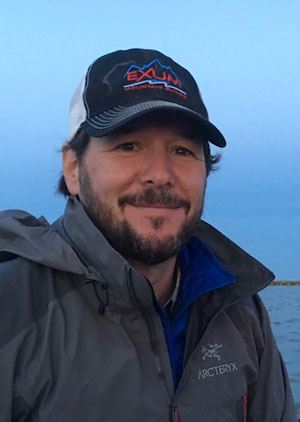
Mathew Testa
Book – Dispatches from Planet 3
MARCIA BARTUSIAK, AUTHOR
Currently Professor of the Practice in the Graduate Program in Science Writing at the Massachusetts Institute of Technology, she is the author of seven books, including Dispatches from Planet 3, Einstein’s Unfinished Symphony, her award-winning history of gravitational-wave astronomy, Black Hole, and The Day We Found the Universe, on the birth of modern cosmology, which won the Davis Prize of the History of Science Society.
In 1982, she was the first woman to win the American Institute of Physics Science Writing Award and five years later was a finalist in NASA‘s Journalist-in-Space competition. She has also received the AIP Gemant Award, the Klumpke-Roberts Award of the Astronomical Society of the Pacific, and in 2008 was elected a Fellow of the American Association for the Advancement of Science, cited for “exceptionally clear communication of the rich history, the intricate nature, and the modern practice of astronomy to the public at large.”
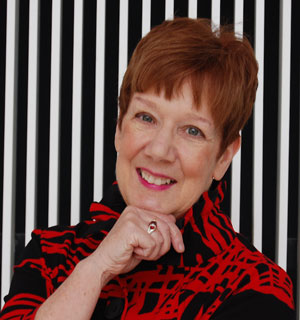
Marcia Bartusiak
Science Inspiration Award
Unsung heroes inspiring potential leaders
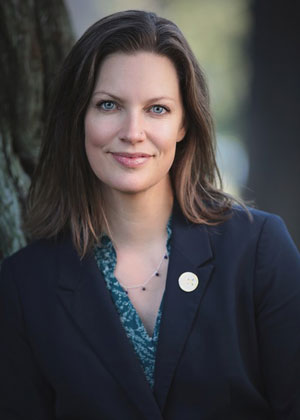
Organization – California Council on Science & Technology
BRIE LINDSEY – SCIENCE TRANSLATOR’S SHOWCASE
Applications are open to graduate students, postdocs, and early-career scientists throughout California. A critical component of the application process is a 60-second audition video. In it, applicants must explain their research and how it helps inform potential policy solutions in California. This is the applicant’s chance to demonstrate their ability to engagingly and concisely translate technical information, tailoring their message and delivery to a senior policymaking audience and staff.
The impacts of this growing program can already be seen as previous Translators apply for science-policy positions and fellowships, and CCST is thrilled to continue to develop materials to encourage the professional development of early scientists who want to make an impact outside of academia.
Brie Lindsey received her PhD in Oceanography from the College of Oceanic and Atmospheric Sciences at Oregon State University and her BA in Environmental Sciences from University of California at Berkeley. Her dissertation focused on the population dynamics and distribution of a krill species off the coast of Oregon, which she investigated with numerical models of its bioenergetics and migration behaviors, modeling them in FORTRAN. Partly because people’s eyes typically glaze over upon the first mention of mathematical models, and partly because she wanted to convey the importance of her work to her family, she developed a keen interest in effective communication of science and its impacts on society to various audiences.
After her PhD and Fellowship, Brie joined CCST’s research team, managing projects on topics ranging from Maker education in California’s community colleges to water use in the oil and gas industry.Becoming a CCST Senior Program Associate, Brie had the opportunity to collaborate on the design of the Science Translator Showcase.She has conducted three Showcases to date, with 39 students from California’s fourteen public and private research universities.
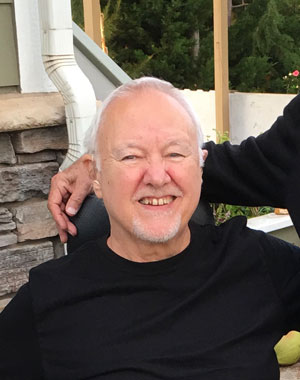
Historical Preservation – Pelkey Productions
JAMES PELKEY – ENTREPRENEURIAL CAPITALISM & INNOVATION: A HISTORY OF COMPUTER COMMUNICATIONS 1968 – 1988
The first two decades of the history of computer communications are filled with countless, interrelated stories of entrepreneurs and the engineers needed to produce the innovations promised to pry venture capital from skeptical investors. I wanted to preserve their stories so that the future will never forget their struggles and monumental contributions.
The basis for the collection is 88 oral interviews across 31 pioneering networking companies and organizations—during the formative years of the Internet conflated the work of the historian with that of the businessman and venture capitalist, inspiring a new genre of historical research and perspective.
As a mechanical engineer from Rensselaer Polytechnic with a Harvard MBA, Pelkey was CEO of both Sorcim and Digital Sound Corporation before a career with Montgomery Securities. He has served on multiple boards, including Blue Sky Research, Metapath, Retix, and Telebit. A founding member of the Charles Babbage Institute, Pelkey was also Chairman for three years of the Santa Fe Institute.
Science for Society Award
Recognizing individuals making impacts in social media, film, books
Film – Citizenship in a Networked Age
RICHARD SERGAY, REBEL MEDIA PRODUCTIONS
Tackling topics like Russian hacking in the 2016 elections, this video features interviews with internet pioneer Dr. Vint Cerf, Michael Wear (director of faith outreach for President Barack Obama), and Nuala O’Connor (President and CEO, Center for Democracy and Technology). The video was produced and directed by Richard Sergay (Rebel Media).
Richard is an award winning veteran network television journalist and media executive who reported on major domestic and international stories for World News, Nightline, and Good Morning America. During a six-year assignment as ABC News bureau chief and correspondent based in South Africa, Richard covered the end of apartheid, the release of Nelson Mandela from prison, and the ensuing peace negotiations. He then shifted focus to the digital revolution unfolding in the U.S. Leaving ABC News after three decades, he joined Discovery Communications as the chief curator of The Curiosity Project, working directly for Discovery chairman John Hendricks and architected the launch of the Curiosity Retreats, and a new web venture called CuriosityStream, the world’s first ad-free factual content site devoted to exploring Science, Technology, Civilization and Human Spirit.
He founded and leads Rebel Media Productions, a boutique consulting firm focused on new media, strategic and mission critical partnerships, and high level thought leader events. Richard graduated with highest honors from the University of California with a BA in Politics, undertook postgraduate work in International Relations at Georgetown University, and was the John S. Knight Fellow at Stanford University.
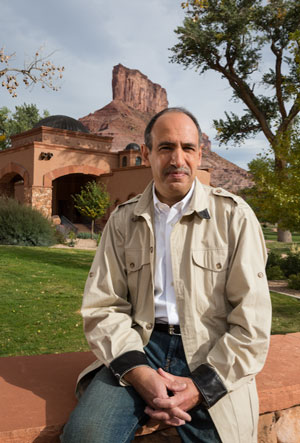
Documentary Sponsorship – The FiReFilm Institute
SHARON ANDERSON MORRIS, CEO FIREFILMS
SNS FiReFilms is a membership-based organization supporting scientifically based documentaries to educate, inspire, and transform humanity, from conception through distribution. Sharon Anderson Morris, SNS FiReFilms CEO, was the co-founder and producer for the SNS/Park City “Future in Review” Speaker Series (2013–2017) in Park City, UT, featuring her interviews with global world-changing technology leaders.”
Her passion is to use her global connections in technology to benefit humanity and our world.
Anderson Morris is on the board of Project Apollo, a creative collaboration between clinical healthcare professionals, research scientists, industry leaders, professors, students, philosophers, and patients. Morris is also on the board of Zoolingua, developing technology to create communication between humans and animals to promote all beings to live in harmony. She is on the Utah Lieutenant Governor’s Technology Task Force and is a member of the Hyperloop Transportation Technologies (HTT) team.
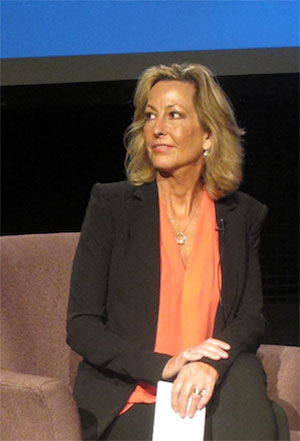
Science Courage Award
Recognizing those who speak out to correct a misimpression or right a wrong
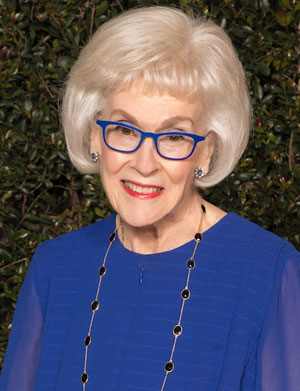
Publishing – A dedication to robust review, transparent policy, and high-quality science
SARA MILLER MCCUNE, SAGE PUBLISHING FOUNDER & EXECUTIVE CHAIR
With more than 1,000 scholarly journals, SAGE Publishing is committed to the highest standards of quality review and publication and takes swift and comprehensive action–both proactive and reactive–to improve the research process. In an era of increasing complexity with regard to scholarly process and practice, such an approach is paramount.
For example, in 2014, the scientific monthly Journal of Vibration and Control retracted 60 articles due to a peer review and citation ring in which a researcher fabricated identities as peer reviewers to help clear articles for publication. Following a 14-month investigation based out of SAGE’s London office, SAGE and the journal’s leadership retracted the articles – and then told the public about incident.
While faking research or intentionally advancing inaccurate results is rare in the academic community, SAGE vigilantly looks for abuse, and studies how SAGE’s own practices can improve when problems are identified. SAGE used the London incident to address journal vulnerability to peer review fraud and enact expanded recommendations for journal editors in line with guidelines from the Committee on Publication Ethics.
For example, SAGE asked journal editors to consider ending the option of allowing authors to recommend reviewers for their papers, which is common in fields where the subject matter is so specialized that finding peer reviewers with expertise is challenging. For the editors that maintain this practice, SAGE modified its peer review system to require additional information about any recommended reviewers, including reviewer institution and a reason for recommending the individual. The company requests that an institutional email address be provided for any recommended reviewers and that editors send papers to at least one independent reviewer in all cases. SAGE also details warning signs of a potentially fabricated review, such as a brief or generic response regarding the article.
The company’s culture–set in place by company founder and executive chairman, Sara Miller McCune–allowed it to take swift action in this and other cases. SAGE is dedicated to improving society through quality education and engaged scholarship. Further supporting this is SAGE’s independence: SAGE does not answer to shareholders and will one day become owned by a charitable trust that will secure its independence indefinitely.
“I have heard it said before that SAGE Publishing is known for being ‘fiercely independent,’ and I’m proud to say that this is absolutely true!” commented Ms. McCune. “This independence also allows us to remain mission-driven for the long-term. As a result, the most talented people in the world of publishing come to us as employees, authors, editors, and society and library partners.”
SAGE Publishing has subsidiary companies and sales offices in Los Angeles, Washington D.C., London, India, East Asia, Melbourne and Latin America. McCune remains actively involved in the company’s ongoing expansion and development. She is also co-founder and president of the McCune Foundation, based in Ventura, CA.
In 2007, she founded the Santa Barbara-based Miller-McCune Center for Research, Media and Public Policy which launched the award-winning magazine Pacific Standard. In 2017, the now online magazine and the center’s mission were transferred to The Social Justice Foundation, a non-profit organization supported by SAGE Publishing. She is currently a member of the board of directors of the Center for Advanced Study in the Behavioral Sciences at Stanford University and a member of the board of directors of the Social Science Research Council.
McCune, a graduate of Queens College, is the recipient of honorary doctorates from Queens College, University of Sussex, University of Bath, and California State University Channel Islands. She is a recipient of the prestigious London Book Fair Lifetime Achievement Award.

Television Coverage – An Insider’s Look at Why Women End Up on the Cutting Room Floor
AYAH BDEIR, CEO LITTLEBITS
Aided by the hue and cry, Bdeir courageously, politely, and succinctly weighed in:
“Here’s the story of how my company was led to believe the segment was about us and our work in getting girls into STEM, how we were told that our voices would be central to making this a “terrific segment”… and, ultimately, how we were pushed aside in favor of a male spokesperson.”
Ayah Bdeir is an entrepreneur, inventor, and interactive artist. She is the founder and CEO of littleBits, a startup with the goal to “put the power of electronics in the hands of everyone, and to break down complex technologies so that anyone can build, prototype, and invent.”
Bdeir earned a Master’s of Science degree from the MIT Media Lab and undergraduate degrees in Computer Engineering and Sociology from the American University in Beirut. In 2010, Bdeir served as a design mentor on the reality TV show, Stars of Science, before starting littleBits in 2011.
Lifetime Achievement Award
Devoting a lifetime to science and knowledge
John and Tashia Morgridge
John and Tashia are both graduates of Wauwatosa High School and the University of Wisconsin-Madison.
John holds a master’s degree in business administration from Stanford University; Tashia has a master’s degree in education from Lesley University in Cambridge, MA.
In addition, John and Tashia established the Morgridge Institute for Research, a research center on the UW-Madison campus, created the Fund for Wisconsin Scholars (FFWS) providing needs-based scholarships for higher education to public high school graduates, and established the Center for Public Service on the UW-Madison campus along with contributions to various educational departments.
Tashia is an educator, author, and philanthropist. John has been a business executive, educator and philanthropist. He is chair emeritus of Cisco Systems.
Both John and Tashia serve on the boards of the TOSA Foundation, the Morgridge Institute for Research and the Fund for Wisconsin Scholars.
John teaches management at Stanford University’s Graduate School of Business, serves on its Advisory Council, and is a past board member of Stanford Hospitals and Clinics.
